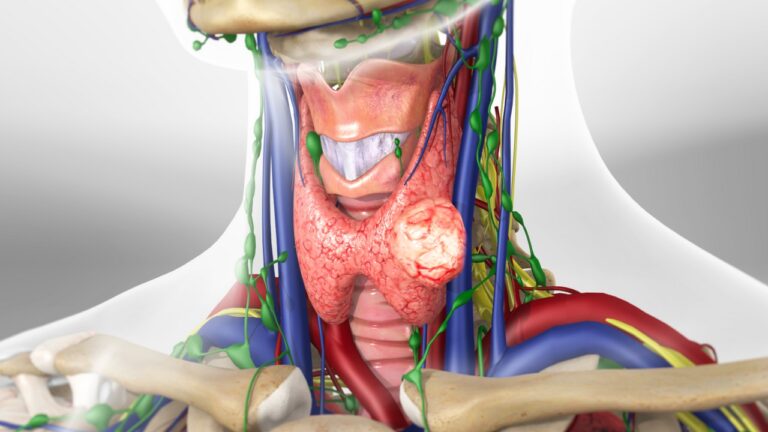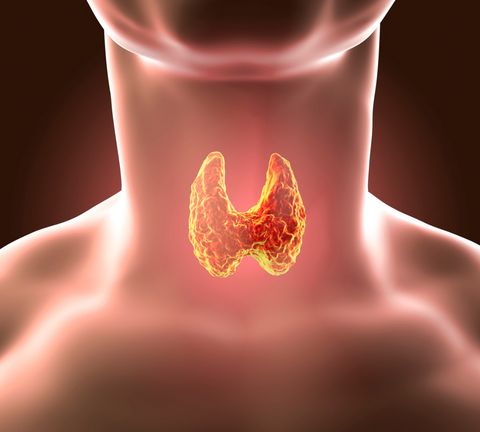Hyperthyroidism And COVID-19: What Patients Need To Know
As the COVID-19 pandemic continues to impact individuals worldwide, those living with hyperthyroidism may have concerns about how the virus could affect their health. Hyperthyroidism, a condition in which the thyroid gland produces excessive amounts of hormones, can affect multiple aspects of an individual’s well-being. In light of COVID-19, it is essential for those with hyperthyroidism to understand the potential implications of the virus on their condition and how they can best protect themselves.
Understanding Hyperthyroidism
Hyperthyroidism occurs when the thyroid gland, located in the neck, releases too much thyroxine (T4) and triiodothyronine (T3) hormones. This can lead to various symptoms, including weight loss, increased heart rate, anxiety, irritability, muscle weakness, and heat intolerance. Common causes of hyperthyroidism include Graves’ disease, thyroid nodules, and thyroiditis.
COVID-19 and Hyperthyroidism
COVID-19 is an infectious disease caused by the SARS-CoV-2 virus, which primarily affects the respiratory system. From minor cold-like symptoms to severe respiratory discomfort, symptoms can vary widely. For individuals with hyperthyroidism, there are several aspects of the disease and treatment that they should be aware of:
- Increased Risk of Complications: While there is currently limited research on the direct relationship between hyperthyroidism and COVID-19, underlying health conditions can increase the risk of severe outcomes from COVID-19. Patients with uncontrolled hyperthyroidism may be more vulnerable to complications, as hyperthyroidism can impact the cardiovascular system and immune response.
- Medication Management: Patients with hyperthyroidism often take medications to manage their thyroid levels, such as antithyroid drugs (methimazole or propylthiouracil) or radioactive iodine therapy. It’s crucial to continue taking these medications as prescribed and maintain regular contact with healthcare providers to monitor thyroid levels during the pandemic.
- Infection and Immune System: COVID-19 can cause an inflammatory response in the body. In some cases, this may exacerbate autoimmune conditions, such as Graves’ disease. Patients should monitor their symptoms closely and contact their healthcare provider if they notice any changes.
- Telehealth Options: Many healthcare providers have shifted to telehealth appointments to minimize in-person contact during the pandemic. Patients with hyperthyroidism should take advantage of these virtual appointments to discuss their condition and any concerns about COVID-19.
- Preventive Measures: Individuals with hyperthyroidism should adhere to COVID-19 prevention guidelines, including wearing masks, practicing social distancing, washing hands frequently, and avoiding large gatherings. By taking these precautions, the chance of getting the infection might be decreased.
- Vaccination: COVID-19 vaccines have been shown to be effective in reducing the severity of the virus and its complications. Patients with hyperthyroidism are encouraged to get vaccinated and follow local health authority guidelines.
Tips for Managing Hyperthyroidism During the Pandemic
To minimize the impact of COVID-19 on hyperthyroidism, patients can take the following proactive measures:
- Monitor Symptoms: Keep track of any new or worsening symptoms of hyperthyroidism, such as palpitations, tremors, or weight loss. Report any changes to your healthcare provider.
- Stay Informed: Keep up to date with the latest COVID-19 information from reputable sources such as the World Health Organization (WHO) and the Centers for Disease Control and Prevention (CDC).
- Manage Stress: Anxiety and stress can worsen hyperthyroidism symptoms. Practice relaxation techniques such as meditation, deep breathing, or yoga to help manage stress during these challenging times.
- Stay Active: Regular physical activity can help regulate thyroid function and improve overall well-being. Choose safe, low-impact exercises such as walking, cycling, or stretching.
- Eat a Balanced Diet: Nutrient-rich foods can support overall health and immune function. Focus on a balanced diet with adequate vitamins and minerals, including iodine, which plays a key role in thyroid health.
- Follow Your Treatment Plan: Continue to take your prescribed medications as directed by your healthcare provider. Do not adjust or stop your medication without consulting your doctor.
- Communicate with Healthcare Providers: Maintain open communication with your healthcare team, especially if you have concerns about COVID-19 or your treatment plan. Telehealth appointments can provide valuable support without the risk of exposure.
Conclusion
For patients with hyperthyroidism, the COVID-19 pandemic presents additional challenges and considerations. By staying informed, following preventive measures, and maintaining close communication with healthcare providers, individuals can effectively manage their hyperthyroidism while minimizing the risk of COVID-19. With proper care and proactive measures, patients can navigate these uncertain times with confidence and maintain their health and well-being.








